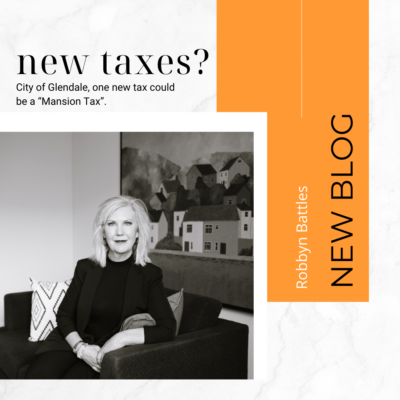 In the bustling city of Glendale, California, a financial conundrum looms large. Faced with a mounting pension obligation of $678 million and a need for increased revenue, the city council is considering various taxation strategies. Among these is a ‘Mansion Tax,’ a concept echoing the recent tax changes in Los Angeles. This blog post delves into the implications of such taxes on higher-end properties and their broader impact on the economy, especially concerning job creation and sustainability.
In the bustling city of Glendale, California, a financial conundrum looms large. Faced with a mounting pension obligation of $678 million and a need for increased revenue, the city council is considering various taxation strategies. Among these is a ‘Mansion Tax,’ a concept echoing the recent tax changes in Los Angeles. This blog post delves into the implications of such taxes on higher-end properties and their broader impact on the economy, especially concerning job creation and sustainability.
What Glendale should be learning from Los Angeles’s background and their considered proposal. The Glendale City Council, led by Mayor Brotman, is considering introducing a Mansion Tax, with a proposed threshold of $2 million for properties. This move comes after Los Angeles implemented a similar tax, set at a $5 million threshold. Observations from L.A.’s real estate market post-tax imposition show significant trends. Nathan Stark, an account executive at Chicago Title, reported a sharp decline in the sales of properties valued above $5 million. The first quarter of 2023 saw 248 sales, which plummeted to just 34 from April 1 through mid-June.
Los Angeles’ experience with the Mansion Tax is telling. The surge in tax rates for high-value property transactions (4% for sales from $5 million up to $10 million and 5.5% for sales above that) has led to a notable reduction in such sales. This decline is not just a statistic; it translates to real economic consequences. Approximately 214 high-value transactions were lost, affecting various stakeholders in the property market.
To illustrate, consider a $5 million property sale in Los Angeles. Under the new tax regime, this sale incurs a $200,000 tax, a steep increase from the previous $28,000. This significant hike affects not just the property seller but also resonates through the economy, affecting businesses and jobs dependent on these transactions.
With the introduction of the Mansion Tax in cities like Los Angeles, the City of Glendale should be wary of the unintended consequences far beyond the real estate market. The decline in high-value property sales has a domino effect, impacting 30 to 40 related businesses per transaction. These businesses range from local tradespeople to financial institutions and their staff, all of whom are vital to the city’s economic fabric.
The discussion around the Mansion Tax opens broader questions regarding government spending and economic health. Increasing taxes, particularly in lucrative sectors like real estate, can strain property owners and higher rents. This, in turn, might lead to reduced housing availability and affordability, further complicating the city’s economic landscape.
Jason Bradford, the Director of Finance in Glendale, has suggested alternative ways to increase revenue. These include business taxes, occupancy tax increases, parcel taxes, property transfer taxes, and parking taxes. These proposals have implications and requirements, such as voter approval and fund allocation restrictions.
In conclusion, the situation in Glendale calls for a critical reevaluation of fiscal strategies. The dilemma of increasing taxes to meet financial obligations must be balanced against the potential economic repercussions, particularly on job creation and market sustainability. It raises the question: Is it time for cities to mirror the average American’s approach to spending, where living within means takes precedence over increasing financial burdens through taxation?
Glendale Homes For Sale:
Sorry we are experiencing system issues. Please try again.
🌐 Sources
- businessinsider.com – Selling Sunset Drama Over LA’s Mansion Tax and What It …
- hoover.org – LA’s “Mansion Tax” And California’s Fiscal House Of Cards
- robbreport.com – How Wealthy L.A. Residents Are Dodging the City’s New ‘ …
- mayerbrown.com – The Los Angeles “Mansion Tax”: How the ULA Tax May Impact Commercial Real Estate Deals
- calmatters.org – Exploring the Prop. 13 Tax Revolt family tree
- abc7.com – Los Angeles mansion tax starts Saturday, adding costs …

